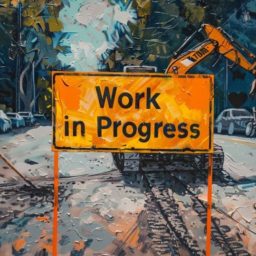
The Socratic Method in the Western Tradition | Peter Boghossian This talk by Peter Boghossian at The Ramsay Centre for Western Civilisation explores the applicability and significance of the Socratic method in fostering critical thinking and advancing civilization. Peter begins by highlighting his interest in finding simple, conceptual “bales of hay” to clean up cognitive … Continue reading The Socratic Method in the Western Tradition Peter Boghossian (2023)

Dave Pollard is a writer on culture, complexity, deep ecology, civilization’s collapse, and the sharing economy. Although I have only ever met Dave once, many years ago, through his writing, he has had a considerable influence on me over the years. His insights into the nature of conversation and complexity never cease to provoke my … Continue reading Dave Pollard Writer on culture, complexity, ecology, civilization’s collapse and the sharing economy

Daniel Schmachtenberge is a founding member of the Consilience Project Daniel is a founding member of the Consilience Project, aimed at improving public sensemaking and dialogue. The throughline of his interests has to do with improving the health and development of individuals and society, with a virtuous relationship between the two as a goal. Towards … Continue reading Daniel Schmachtenberger A founding member of the Consilience Project

It is largely because civilization enables us constantly to profit from knowledge which we individually do not possess and because each individual’s use of his particular knowledge may serve to assist others unknown to him in achieving their ends that men as members of civilized society can pursue their individual ends so much more successfully … Continue reading Civilization and Communal Knowledge Friedrich Hayek

Gurteen Knowledge Blog February 24, 2021, 17:25Introduction I want to look at Knowledge Management’s future, but a warning — it may not be what you expect. In the last few years, my work’s focus has turned towards the big picture of the evolution of human knowledge and how we need to think differently to tackle the … Continue reading Reflections on the Future of Knowledge Management Societal Knowledge Management

In this book The Empathic Civilization, Jeremy Rifkin tells the story of the extension of human empathy from the rise of the first great theological civilizations, to the ideological age that dominated the 18th and 19th centuries, the psychological era that characterized much of the 20th century and the emerging dramaturgical period of the 21st … Continue reading The Empathic Civilization: the Race to Global Consciousness in a World in Crisis Jeremy Rifkin (2010)

video player How to change your thinking with Daniel Schmachtenberger | Aubrey Marcus (Everyone believes they’re the good guy) Posts where this video is embedded A Brief History of Knowledge 200,000 years of history Avoiding Modern-day Colonialism Colonialism: the dominance, control, and exploitation by one group over another British Gentlemen’s Clubs ** Of the 17th and 18th Centuries Conversation … Continue reading How to Change Your Thinking with Daniel Schmachtenberger Aubrey Marcus

If a chimpanzee ventures into the territory of a different group, it will almost certainly be killed. But a New Yorker can fly to Los Angeles–or Borneo–with very little fear. Psychologists have done little to explain this: for years, they have held that our biology puts a hard upper limit–about 150 people–on the size of … Continue reading The Human Swarm: How Our Societies Arise, Thrive, and Fall by Mark W. Moffett (2019)

Humiliating to human pride as it may be, we must recognize that the advance and even the preservation of civilization are dependent upon a maximum of opportunity for accidents to happen. Credit: Friedrich Hayek Source: The Constitution of Liberty (page 81)Posts where this quotation is embedded A Brief History of Knowledge 200,000 years of history Avoiding Modern-day … Continue reading The Advance of Civilization Is Dependent Upon the Opportunity for Accidents to Happen Friedrich Hayek

video playerIn Search of the Third Attractor (part1) | Daniel Schmachtenberger Timestamps Where are we headed as a species? What is the landscape of risks and challenges that we need to confront over the next decades, and are there a small number of key factors that we need to solve to avoid catastrophe? As he … Continue reading In Search of the Third Attractor (part 1) Daniel Schmachtenberger (2022)

video playerIn Search of the Third Attractor (part 2) | Daniel Schmachtenberger Timestamps Where are we headed as a species? What is the landscape of risks and challenges that we need to confront over the next decades, and are there a small number of key factors that we need to solve to avoid catastrophe? As … Continue reading In Search of the Third Attractor (part 2) Daniel Schmachtenberger (2022)

Gurteen Knowledge Blog September 6, 2022, 20:23I am a massive fan of the work of Daniel Smachtenberger, and you may recall I wrote about his four-part War on Sensemaking videos in 2019. If you want to understand why our information ecology is so badly damaged and what it would take to make it healthy – these … Continue reading In Search of the Third Attractor Daniel Schmachtenberger

The assumption that technical civilizations must necessarily make an appearance, even after many billions of years of biological evolution, implies that the ultimate purpose, or goal, in the formation of stars and planets is the production of intelligent beings and technical civilizations — an idealistic and teleological view. Credit: Carl Sagan Source: Intelligent Life in … Continue reading The Rise of Technical Civilizations Carl Sagan

The pursuit of truth is a fundamental human endeavor. However, arriving at the truth can be challenging, as our beliefs and ideas may be based on flawed assumptions or lack sufficient evidence. The Scientific Method and the Socratic Elenchus provide systematic approaches by emphasizing the rigorous testing and refutation of ideas. The Two Methods The … Continue reading The Pillars of Truth ** How the Scientific Method and Socratic Elenchus underpin civilization

The origins of conversation stretch back long before recorded history, evident in oral traditions, myths and records of ancient cultures across the world. Through archaeology and study of early writings, we can piece together the foundations of dialogue that evolved over millennia in human societies. The Origins of Conversation The origins of conversation extend deep … Continue reading The Emergence of Conversation in Early Cultures ** Conversation stretches far back into prehistory

In this chapter, I explore our evolutionary journey, which extends from the moment of the Big Bang to the eventual destiny of the Universe. In the context of this journey, I also delve into speculation concerning both individual purpose and humanity’s overarching purpose. The Journey Humanity finds itself in an extraordinary time of transition. We … Continue reading Introduction: Our Evolutionary Journey From the Big Bang to the universe’s death

Longtermism is a philosophy focused on doing the most cumulative good possible from a civilization-scale perspective. It argues we should prioritize reducing existential risks and positively shaping humanity’s long-term potential, as the future contains vast potential value. Longtermism is a philosophical and ethical concept that focuses on considering the long-term consequences of our actions and … Continue reading Longtermism Doing the most good possible from a civilization-scale perspective

What’s the problem? Things are not working well. Furthermore, they are getting worse. Our world is in turmoil. It is a mess. I think most of us would agree. Surprisingly though, there is plenty of evidence that our quality of life is better today than ever. Steven Pinker has extensively documented the evidence in his book … Continue reading Our World Is a Mess The problems

The world is hyperconnected, fast-changing, and complex. It’s a VUCA world – increasingly volatile, uncertain, complex, and ambiguous. We live in a hyperconnected world that has led to increased complexity. The impact of complexity Increased complexity, in turn, has given rise to raised: Volatility is where things change rapidly and unpredictably, especially for the worse. … Continue reading Our World Is Complex It is a VUCA world











